“How has the COVID-19 crisis affected the Australian employment and recruitment markets?”
The feedback from our clients is that it has actually been very different per industry and even the type of recruitment, which has been surprising. Permanent recruitment for the most part completely dropped across the board, except for high-level healthcare positions. The reason for this? Healthcare facilities that remained open really wanted to limit their exposure by having less agency, so the solution in some cases was to hire a full-timer to cover more hours. This was probably one of the few industries that saw a spike in permanent – medical being the other one.
Conversely, temp healthcare surprisingly suffered the most as an industry behind only the hospitality industry (which basically was completely shut down). Healthcare clients in temp lost at least 40% business, and up to 90% in some cases. This was due to a number of factors like holidays being cancelled, partners losing jobs, Visa regulations being lifted, internal hours increasing and elective surgery being cancelled. These combined with the fact that the COVID-19 cases did not explode like many media outlets predicted, the end result surprisingly(and sadly) being many Nurses going to Coles to get a shelf-stacking job! This will cause significant long term effects when it rebounds back because there will become a vacuum of demand again with no supply – labour hire being a “use it or lose it” industry.
In other industries for staffing & labour hire, we saw education drop by about 20%, social work & community services like NDIS remain steady, in-home care actually increasing, manufacturing increasing and construction either going up or down by about 20%, depending upon where the contracts were (for example some government projects got rushed through to completion, whereas other private deals stalled). White-collar professionals as well saw even larger variations depending on industry, as white collar work could go across many different verticals. It has been an incredibly nuanced situation making it very hard for employers to predict in a case by case basis.
“What role has technology played in your ability to respond to the crisis?”
It was absolutely huge, being an international software company we were already very familiar with Zoom, which we used already for daily, weekly and client facing meetings, which we doubled in frequency throughout the crisis. This actually helped us stay connected with clients and each other throughout the WFH period. Additionally, we run both MS teams and a full cloud database storage internally, which meant our communication stayed consistent. Our phone system is also completely VOIP, run through Apps so there was literally no change for clients in making service calls to us, which I felt personally was really important during a stressful time for everyone, especially our clients who we had to support through the JobKeeper process (as our software runs payroll for thousands across Australia).
For our clients, we were able to help them set up a number of Entire OnHire software specific features that were all driven by the COVID-19 situation. For example, switching to digital time-sheets overnight for hygiene reasons, launching GPS check-in on candidate apps for remote work accountability, enabling JobKeeper to run through the same payroll system. Even simple things like having more transparency through client portals, who could see certain certificates FLU Vaccine in healthcare and medicine (just one example), became critical in helping our clients support their clients through the whole crisis with confidence.
“Where can tech add the most value at the current time?”
Technology’s biggest advantage right now it gives you such scale-able infrastructure. This crisis showed that your supporting systems must be able to go anywhere at any time. This will only accelerate the inevitable over time which is that expensive fixed (as in location) costs will become a thing of the past. The more you can outsource like your offices, cloud hosting, VOIP calls, software etc. the more flexibility you have to pivot quickly without massive losses to both service and bottom like profits.
I know people who before COVID had a fancy office, with an internal expensive server and fully installed phone that all was completely useless during COVID-19. They had to negotiate over $50K a month expenses with locked contract suppliers whilst having to completely pivot to interim “WFM” solutions, which they obviously also had to pay for. Additionally technology gives the ability to manage and run a business remotely, mostly through accountability and transparency.
Great technology to my mind isn’t replacing humans but empowering them to “work without barriers”. Examples of this is being able to manager a workforce working from home, knowing who is working where, when, on what and why. Many organisations still rely on internal face to face meetings or someone’s presence at an office to get an update on key accounts, projects or issues. Technology as an example can and should automate and facilitate this knowledge sharing (think GPS check-ins, time logging, automatic progress updates when tasks are completed in a CRM). When people are working from home, technology should be empowering the managers to be as effective as in the office, if not more.
“How do you expect hiring in Australia to change post-COVID-19?”
Obviously initially, there will be more candidates going forward, the market will shift from candidate poor to candidate rich for a period of time. However I think at the same time we are going to see much more “open” job descriptions, as a starting point. By open, I much more flexible, less specified roles, less fixed contracts, more part-time and casual employment will be wanted by Employers, scared to commit to fixed costs.
Interestingly, a lot more Manager’s have not been able to see what people are doing, a lot of the time, they’ve had to rely on technology or more accurately, the outcomes that people are producing to prove they are working. Smart Companies have realised they don’t have to have a list of 15 responsibilities that a person does for them to be successful at a job. This, and I hope this is the case, will mean that descriptions pivot more towards “outcomes to be achieved” than “things you should be doing each day”.
I believe Covid-19 has accelerated the move towards a remote and contingent workforce (which was already growing as per industry trends and younger generations wanting more flexibility and work life balance) by a factor of at least 10. One factor I’m not sure on, if the younger generation who lost jobs and positions will push back on this change and demand more stability in their roles, having found out for the first time that employment is not guaranteed. Finally, I can see that companies who work in recruitment and labour hire will see greatly increased compliance and hygiene requirements layered through the recruitment, on-boarding and placement process in some manner.
“What challenges and opportunities will a larger pool or candidates create for businesses going forwards?”
More candidates means to me means opportunity. The recruitment companies that engage with candidates now, even without having positions will come out the absolute winners down the track. New sub-industries will definitely crop up, like what we saw after September 11. Airport security and associated services about quadrupled after that event, globally. Measures that were put in as “interim responses” became the status quo across Airports even still today. New businesses and sub-industries will need to support these.
I expect to see smart companies do great things in hygiene, cleaning and medicine, likely blending into other industries; imagine a medical company that provides food that’s guaranteed to protect you from certain viruses. Or a new government mandate that creates new laws around how clean you need to run your cruise ship – that then creates new jobs in accreditation and compliance for said cruise ship.
Likely you will see the secondary flow-on effects into legal and education industries that will all generate new jobs.
“What lessons have been learned about improving the candidate journey through the crisis – from interview to on-boarding?”
In a few words, centralisation and personalised automation. The biggest change is that the candidate will form a relationship with the company, not the recruitment consultant.
Personally I believe this is a (painful) wake up call for a lot of recruitment companies that I still see stuck in the 1990s of recruitment, where most recruitment consultant runs their own show like a high-level salesman, hoarding their own candidates and clients and managing every single candidate from initial job post to the final signature, being the sole point of contact for that candidate. I have long criticised this as incredibly inefficient and risky for any business owner, but especially recruitment which is all about people and the strength of the relationships you build. Many companies I know of that ran large banks of consultants in this matter ended up firing many through Covid-19 (I’m proud to say not many of our clients).
Centralisation has been slowly happening for years, and I see this greatly accelerating up now. By centralisation I mean things like; recruiter’s sharing their clients and candidates, team-based, outcome driven KPI’s and commissions that are shared (not all will agree with this). It’s a systemised approach to running the business, more specialist driven, with departments clearly running the admin of different functions, like on-boarding, compliance and job scheduling, so the recruitment consultants can focus on the unique ‘human” abilities they have like interviews and personality matching for their client. I’m talking about the recruiter’s a lot here because by splitting up all these roles across the business, the candidate will experience a completely different experience than they did before (for companies that move to centralisation).
That’s where the personalised automation comes in. For the candidate, the process has to become friction less, effortless, mobile friendly, simple and feel incredibly person to each candidate- yet behind the scenes, is running on high level automation which is only possible with a powerful systems infrastructure. I’ll be honest, this centralisation is the successful pivot we’ve seem from leading agencies who have actively told us this will become their model and it’s obviously something I have a vested interest in facilitating at Entire OnHire. Long term, I do believe this will be a win for both candidates and companies, who will both spend more time on the human elements of recruitment, and less time on the administration. Or at least for those that push forward into this model.
“What have you been / will you be investing in to come out of the crisis a stronger business (for example, technology, people, training)?”
Interesting one, even as a technology company I would say we were lacking in certain areas where it suddenly became clear we could and should be automated. I feel now it’s clear how valuable people are, and it makes no sense wasting anyone’s time on something that can be done by a computer, program or even a robot! “Spring cleaning” is the term I heard a lot of people use, and we certainly did that internally.
Additionally, it was a great opportunity to have seriously open and honest conversations with customers and even prospects, especially on open platforms like LinkedIN, which I spent many hours on just to keep a pulse on what was happening in our industry. We learnt a lot of new information about industries we thought we’d completely understood, which is also a good check to the ego. In doing so this actually really helped us see which clients for Entire OnHire were really our ideal, successful clients, and we are now re-targeting all our marketing and sales campaigns around and towards these companies which I’m incredibly excited about.
Personally, I’m ensuring we triple our investment in internal development, training and advisory services. Our people are our most valuable asset, many manager’s say this, but to me, you prove this by spending money on keeping them that way and growing them further. This includes myself, as I personally look to increase our leadership team’s spend on coaching and advisory services by about 200%. The philosophy being more experience, wisdom and expertise will help us navigate these experiences much better in future.
Flexibility will be a huge organisational investment change for us, be it total hours or working from home, or other working conditions, as it became obvious as something most staff enjoyed to some extent over this period. I’ve never been a huge stickler or “rules for the sake of tradition”, and I know we will be implementing several changes that give much more freedom to staff. I mean, if the work is being done correctly, your employees are giving you ROI (assuming you can track this) and your company values are being upheld – does it matter if your team is working from their bed in their pyjamas? (hopefully not for client meetings, but you get my point!).
As such, for me this was a reaffirmation that development and real care for your staff need to continue, every person you hire now has to be an absolute A-player achieving 3 times as much as those of our competitors in similar roles. I believe many companies realised this was not the case, hence so many people did lose their jobs very quickly when the proverbial “hit the fan” so to speak. Entire OnHire was fortunate not to be in this scenario, and it’s my responsibility as CEO to ensure it remains that way for the next COVID level event – and you have to assume there will be more. I hope the next time we are ready for it, to my mind that should be every company’s key priority right now – as we don’t know what the next event will look like.
Read Also –

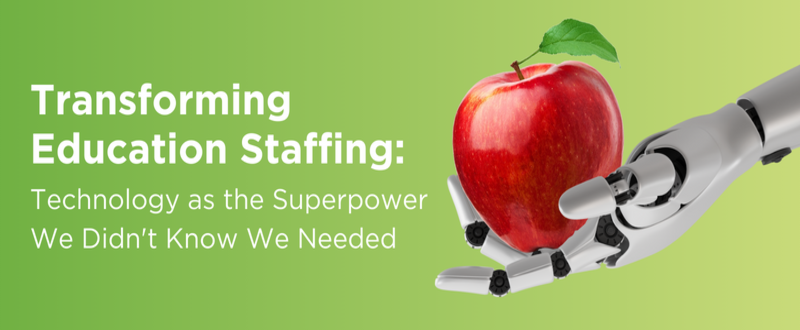

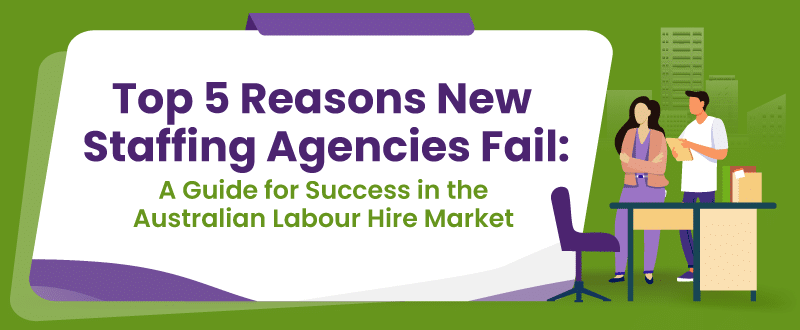




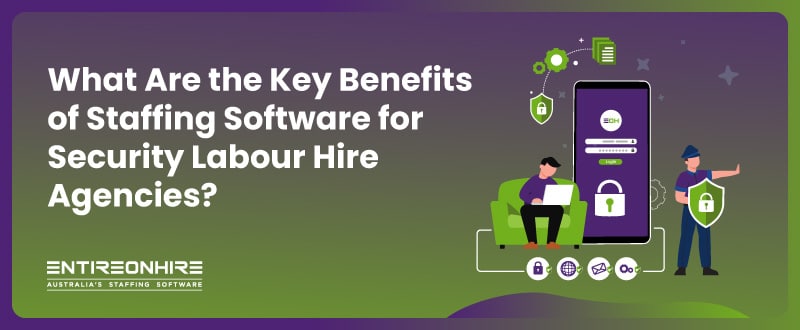
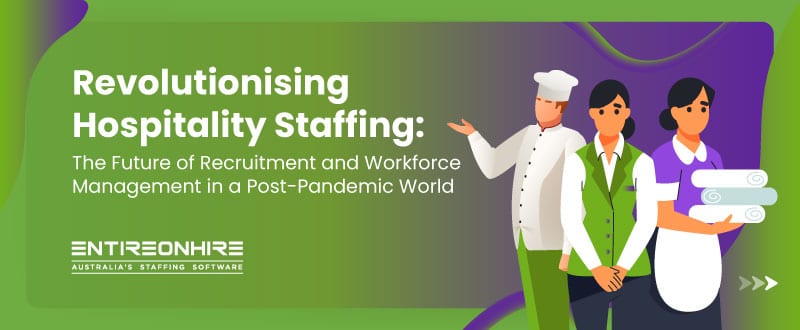
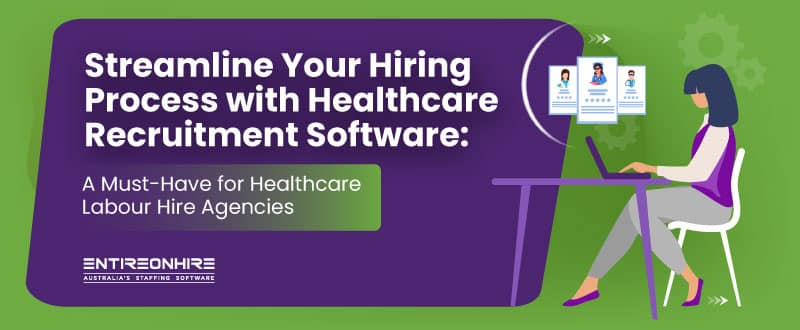


Leave a Reply